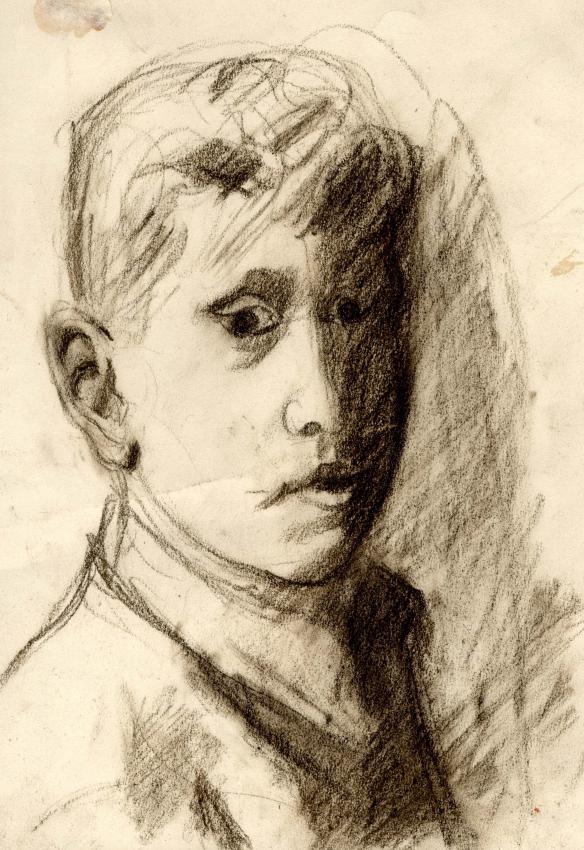The Theresienstadt ghetto was established in the area of a fortress that had once served as the living quarters for the Czech army.
The deportations of the Jews to Theresienstadt created terrible over crowding. The men were separated from the women, and they lived in different barracks. This caused a situation wherein most families did not live together. In order to make the conditions better for the children, the Jewish leadership initiated the movement of some of the children to special homes (heim).These homes were established in public buildings. In the heim the children were educated, were able to receive better food rations than the adults, and, for many hours of the day were under the direct supervision of the madrichim. This is why many of the parents preferred that the children live in the heims without them. These conditions created a unique atmosphere.
How did these conditions impact on the relationships between the children and those surrounding them?
Opening question
- Think of the surroundings that you are familiar with: What elements are essential for a normal, healthy childhood?
Activity
Read the following sources and watch the testimony on video. When you are finished, you can discuss the questions in the next paragraph:
Source A:
On the humiliation of the parents in the eyes of their children, Mordechai Ansbacher relates
"My mother contracted dysentery and became weaker every day […] one evening I came from the heim to talk to her. I saw that she was no longer speaking. She was just staring. I said to her: "Mother, here I am, I want to talk to you", and she said: "No, my child, there's no need." I saw that she was very soiled, I mean her body, and I couldn't do anything or be of any help. There was no nurse, and I walked left through the house […] my mother kept asking for water […] With great difficulty I obtained a drop of water and gave it to her. She kept on saying: "I can't go on anymore […]" I did what children don't usually do. I cleaned her and threw away the rags. I told her: "I will not leave you under any circumstances; we will live together."
Keren, Fragments of Childhood, (Heb.), p. 60
Source B:
On the living conditions of the parents Eli Bechner relates
"I remember my mother worked as a cleaning lady in L417 and slept in the barracks at night. When I used to come to visit her in her free time, I didn't feel comfortable. It was an enormous hall in which 100-120 women lived. When I came, I couldn't knock on the door for permission to enter. More than once I entered and a woman was undressing or lying on her bed, and it was not pleasant for me. I was embarrassed. So I would ask someone to call her outside and we would get together there."
Keren, Fragments of Childhood, (Heb.), p. 59
Questions for Discussion
- Did the children's separate housing from their parents change the nature of the relationship between parents and children (distance, closeness, undermining authority, and so on)?
- What dilemmas arise in the preceding texts? How can the children and their parents resolve the dilemmas? Which dilemmas cannot be resolved?
Often, one of the serious crises that occurred during the Holocaust was the loss of the parents' ability to protect their children and create a healthy living environment for them. They were deprived of the experience of parenthood. In this reality, the child was required to create a world for himself/herself that balanced the reality that was imposed on him/her, the limited ability of his/hers parents to help him/her, and his/her own capabilities to cope with the challenges. The parents were more often than not helpless and unable to alleviate their children's hardships. This shook up the balance in the relationship between parents and children.
For the Teacher
Parents play a crucial role in the formation of their children's identity and destiny. They mold the children's self-image, recognize their individual aspirations and instill in them the values that will guide their children's lives. The relations between parents and children are based on closeness and mutual dependence. The children need the parent to provide all of their basic needs - food, shelter, and unconditional love, and the parents need their children to give their own lives a purpose and continuity. The children's growth and the stability of their inner world depend to a large extent on the parents' ability to fulfill this role.
For the Teacher
The separation from their parents forced the children to become responsible and independent. In the barracks, the madrichim played a very important role in the children's lives, while the parents were forced aside. In addition, the parents were deprived of their basic right to bring up their children with a sense of their values and to impart their world-view to them. Parents frequently stood by helplessly watching the ways in which their children were forced to grow up because of their harsh living conditions such as epidemics, disease, and humiliation. If that was not enough, the deportation train left the ghetto every week, instilling terror in the hearts of the few who remained. Sometimes the members of a family were separated and sent alone to their deaths in the camps.







